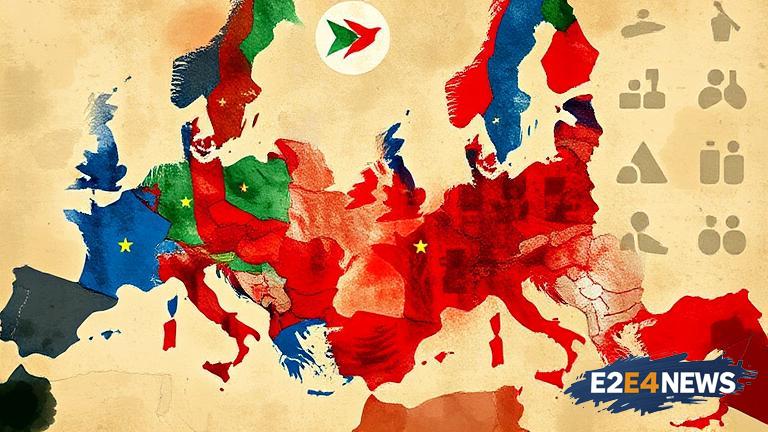The European Union has long been a key player in the Israeli-Palestinian conflict, with the bloc providing significant financial and diplomatic support to the Palestinian Authority. However, the EU’s stance on the Gaza conflict has been subject to intense scrutiny and debate in recent years. The EU has consistently called for a two-state solution to the conflict, with Israel and Palestine living side by side in peace and security. Despite this, the bloc has faced criticism for its perceived bias towards Israel, with some arguing that the EU’s policies have exacerbated the humanitarian crisis in Gaza. The Gaza Strip has been under an Israeli blockade since 2007, which has had a devastating impact on the local economy and living standards. The EU has provided significant humanitarian aid to Gaza, but some have argued that this is not enough to address the root causes of the crisis. The EU’s foreign policy chief, Josep Borrell, has called for a more nuanced approach to the conflict, one that takes into account the complexities of the situation on the ground. However, this has been met with resistance from some EU member states, which have been wary of being seen as too critical of Israel. The EU’s relationship with Israel is complex and multifaceted, with the two sides cooperating closely on issues such as trade and security. However, the EU has also been critical of Israel’s settlement policy, which it sees as a major obstacle to peace. The EU has also been a strong supporter of the Palestinian right to self-determination, and has provided significant funding to the Palestinian Authority. Despite this, the EU’s efforts to promote peace and stability in the region have been hindered by the lack of a unified position among member states. Some EU countries, such as Ireland and Sweden, have been strongly critical of Israel’s actions in Gaza, while others, such as Germany and the Czech Republic, have taken a more nuanced approach. The EU’s stance on the Gaza conflict has also been influenced by the rise of populist and nationalist movements across the continent. These movements have often been critical of the EU’s migration policies and have sought to link the Gaza conflict to the issue of migration. The EU has faced criticism for its handling of the migration crisis, with some arguing that the bloc’s policies have exacerbated the problem. The Gaza conflict has also had a significant impact on the EU’s relations with other countries in the region, including Egypt and Jordan. The EU has sought to promote stability and security in the region through its support for the Palestinian Authority and its efforts to promote economic development. However, the EU’s efforts have been hindered by the lack of a unified position among member states and the complexity of the situation on the ground. The EU’s stance on the Gaza conflict is likely to remain a major point of contention in the coming years, with the bloc facing significant challenges in its efforts to promote peace and stability in the region. The EU’s ability to navigate the complex web of international relations and to promote a lasting solution to the conflict will be crucial in the coming years. The EU’s relationship with the US will also be important, as the two sides seek to coordinate their efforts to promote peace and stability in the region. The EU’s stance on the Gaza conflict has significant implications for the bloc’s credibility as a global actor and its ability to promote peace and stability in the region. The EU’s efforts to promote a lasting solution to the conflict will require a unified position among member states and a willingness to engage with all parties to the conflict. The EU’s stance on the Gaza conflict is a complex and multifaceted issue, with the bloc facing significant challenges in its efforts to promote peace and stability in the region.
